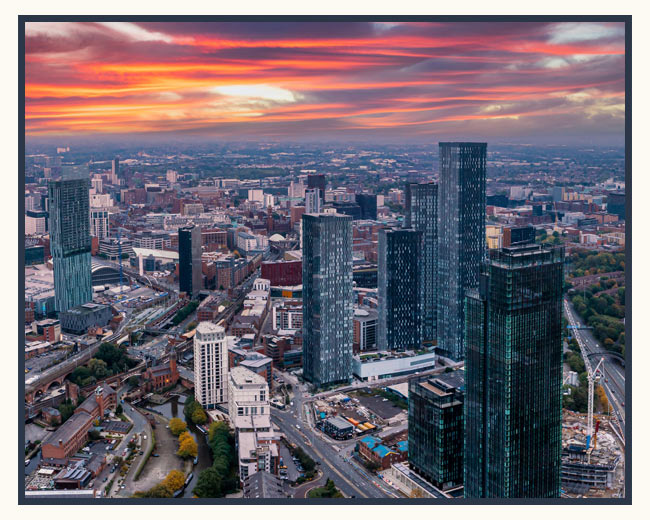We're celebrating European Day of Languages at Memrise! First celebrated back in 2001, one of the main aims of the day is to promote lifelong language learning - something we can definitely get on board with. European Day of Languages also seeks to celebrate linguistic diversity and multilingualism, so we've decided to do some research about some of the most multilingual cities on Earth, not just in Europe.
While this list is far from exclusive, it does give a pretty nice idea of how multilingual the world's cities can be (and might give you inspiration for your next holiday).
10. Barcelona
This Mediterranean metropolis is unique in being almost entirely bilingual, with Spanish understood universally and Catalan understood by way over half of the population. Catalonia’s education system also ensures that all children leave school entirely bilingual in both languages, and as a result has been praised by organisations such as UNESCO for its success in fostering social cohesion in the region. Official signage is entirely in both languages, and both can be heard across all parts of the city.
9. Macau
Following on from its history as a Portuguese colony, Macau nowadays is a trilingual city with high rates of comprehension in Cantonese, Mandarin and Portuguese. Cantonese is the most commonly spoken home language, but most residents also converse fluently in the other two. There are increasingly high levels of proficiency in English as well.
8. Jerusalem
The holy city for three of the world’s main religions is also home to at least three languages. Hebrew is spoken by the Israeli population found mainly in the west of the city, but is also very widely understood and spoken amongst the Arabic-speaking Palestinian population in the east. In addition, there is also extremely high rates of English proficiency, and due to the city’s large immigrant population Russian, French, Spanish, Armenian and Amharic are not uncommon either, with Yiddish spoken by many Orthodox Jews.
7. Luxembourg
Nestled in the heart of Europe between four other countries, it’s not surprising that this state is well and truly multilingual. A very high percentage of residents describe themselves as multilingual. Luxembourgish, French, German and English are all spoken across Luxembourg, while Portuguese, Italian, Spanish and other European languages are also spoken in certain communities.
6. Singapore
The government of Singapore recognises four official languages: English, Malay, Mandarin and Tamil. Singapore also has a bilingual education policy, meaning that all Singaporeans are fluent in English and at least one other official language. The local Creole language Singlish is also widely spoken and understood, despite not being officially recognised as such, as well as over 20 other languages spoken by immigrants in this global city on the edge of the equator.
5. Oranjestad, Aruba
Tucked away just off the coast of Venezuela, this little island of only 100,000 people is also home to four different languages. As the name of the country’s capital would suggest, Dutch is heavily represented here as Aruba is still a part of the Kingdom of the Netherlands. In addition, all school children study Spanish and English at school, but the island’s mother tongue has its roots in Portuguese. Papiamento has been officially recognised as the island’s main language since 1999, and is spoken, used and understood by virtually everybody.
4. Kuala Lumpur
The Malaysian capital, popularly known as KL, is rapidly becoming one of the largest financial centres of the Far East, boasting five widely-spoken languages, and several more. Bahasa Malaysia is the city’s main language, with nearly 15 million speakers worldwide, but most people in the city can claim proficiency in English as well, with many adopting it as a first language. Mandarin, Cantonese and Hakka Chinese are also all widely spoken amongst the city’s large Chinese community, and KL’s Indians mainly speak Tamil, although Malayalam, Telugu, Hindi and Punjabi are also spoken there.
3. Johannesburg
South Africa is one of the most multilingual countries in the world, and Johannesburg is its beating economic and industrial heart. All 11 of South Africa’s official languages are spoken here, with ten having significant representation. 23% of the city’s 4.5 million inhabitants speak Zulu as a first language, followed by 20% English and 18% Xhosa. Afrikaans, Ndebele, North Sotho, South Sotho, Tswana, Venda and Tsonga can also be found. The ability to speak two, three, four or even five or these languages to varying degrees of fluency is extremely common, although English slips to being the default if all else fails.
2. Mumbai
21 million people live in this Indian metropolis, making it one of the largest cities in the world. With 16 different languages spoken, it is also one of the most multilingual. Like South Africa, India has many official languages which are represented in its industrial and economic heart. Marathi, Hindi, Gujarati and English are the most commonly used, but increasingly the streets resound with Bambaiya – a blend of Marathi, Hindi, Gujarati, English, Konkani and some invented words.
1. Manchester
England is probably the last place that comes to mind when we think of multilingualism. English speakers are infamous antiglots the world over, and many simply assume that British multiculturalism ends at the M25. However, a study by Manchester University revealed that up to 200 different languages are spoken in the Manchester area. Even more impressive than that is the density of this multilingualism, given the city’s relatively small size. The city’s libraries hold over 20,000 books in foreign languages, which were borrowed 70,000 times in the past year. The most commonly-spoken languages in Manchester after English are Urdu, Arabic, Chinese, Bengali, Polish, Panjabi and Somali, all of which are also highly sought-after in the job market.
So, have you visited any of these multilingual metropoles? Which other cities would you add to this list?









